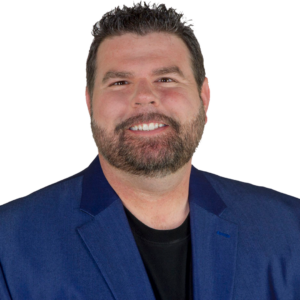An interview with ALFA’s James Balda
No announcement of a new name for the Assisted Living Federation of America (ALFA) greeted attendees of the organization’s 2015 annual meeting, which concluded Thursday in Tampa, Fla. The group’s leaders previously had indicated that such a declaration might be forthcoming.
“We’re the new ALFA, and we’re going to be the new ALFA for the foreseeable future,” the organization’s president and CEO since January, James Balda, told Long-Term Living in an exclusive interview at the meeting, which he said had record attendance. ALFA’s board is still discussing such a change, he added. “We’re just being very diligent in how we go through this process,” Balda said.
The issue is important, he said, adding, however, that the current name carries much value, and “what’s most relevant in my mind is what we do as an organization. That’s what develops your brand, not the name itself.”
So what is this new ALFA doing? Although meeting attendees didn’t hear a new name, they did hear of a new initiative, Senior Living 2025: A Roadmap. The effort will seek to establish a united voice around major issues facing the industry.
“It’s not an ALFA initiative, although we’re kicking it off,” Balda said. “We want to bring as many other partners and stakeholders into the conversation as we can.” That conversation will occur during town hall-like events hosted by Balda and ALFA Senior Vice President of Public Policy Maribeth Bersani at various locations across the country. What they hear will help the organization “develop a strategic plan, in essence, for the industry,” Balda said.
The four “macro themes” of the initiative—workforce development, quality care, operational excellence and consumer choice—“are relevant today and tomorrow,” Balda said, although “the work that we at ALFA will be doing on behalf of the industry under those themes could change, ultimately.”
“We want to listen to the industry and get their thoughts,” he said of the initiative. “We’ve got somewhat of a structure but no pre-conceived notions around what we’re going to hear around those four topics.”
For now, working under those macro themes, ALFA is on the way to establishing, through an independent organization, a credentialing program—first for executive directors, with plans to expand the program in the future to cover roles in memory care and sales and marketing. In Tampa, the organization hosted about 30 subject matter experts (SMEs)—executive directors and authorities in operations, human resources, clinical matters, gerontology and business. During a three-day session, they identified key knowledge areas needed of an executive director, then spelled out the job tasks required under each of those areas.
The SMEs “came specifically for this, which I think is a testament to their commitment to the project,” Balda said, adding that the effort keeps ALFA on track to launch the credentialing program in 2016. Test development and validation as well as training will be the next steps.
Also in Tampa, he said, ALFA’s executive advisory board gathered to discuss the standards the group hopes to develop. “We wanted to get some input from CEOs of several of our member companies,” Balda said. ALFA plans to launch “a first generation of standards” by the end of the year, he added, although the group has not decided what form they will take. “We’ve still got some work to do there.”
ALFA also has committed to strengthening its ties with state partners, helping them obtain resources, increase membership and secure volunteer talent.
Through all of these efforts to create “a self-regulatory framework,” Balda said, “We’re getting ourselves ready for things to come.” Occupancy and development are strong, and demographics point to a positive future for the industry, he said, but public policy challenges will arise.
“In the coming decades—and I’m talking long-term—the largest voting bloc in the country is going to be looking for long-term care, and our industry, as the single largest private-pay sector in the care continuum, is uniquely positioned to help serve that role,” Balda said. “But there’s also going to be a lot more visibility on our industry and anybody in the senior living space or in the long-term care space. And there’s the possibility of more regulations, more media scrutiny, and certainly, consumers are going to be more aware and…more educated about what’s going on. So [the future holds] a lot of opportunities for the industry and a lot of challenges, and I think the work we’re doing now is going to position us well to face those challenges.”
Related content:
ALFA launches Senior Living 2025 initiative
ALFA announces credentialing body
Incoming ALFA chief's priorities include fortifying ties, implementing agenda

Lois A. Bowers was senior editor of I Advance Senior Care / Long-Term Living from 2013-2015.
Related Articles
Topics: Advocacy , Articles , Executive Leadership , Leadership , Operations , Staffing











